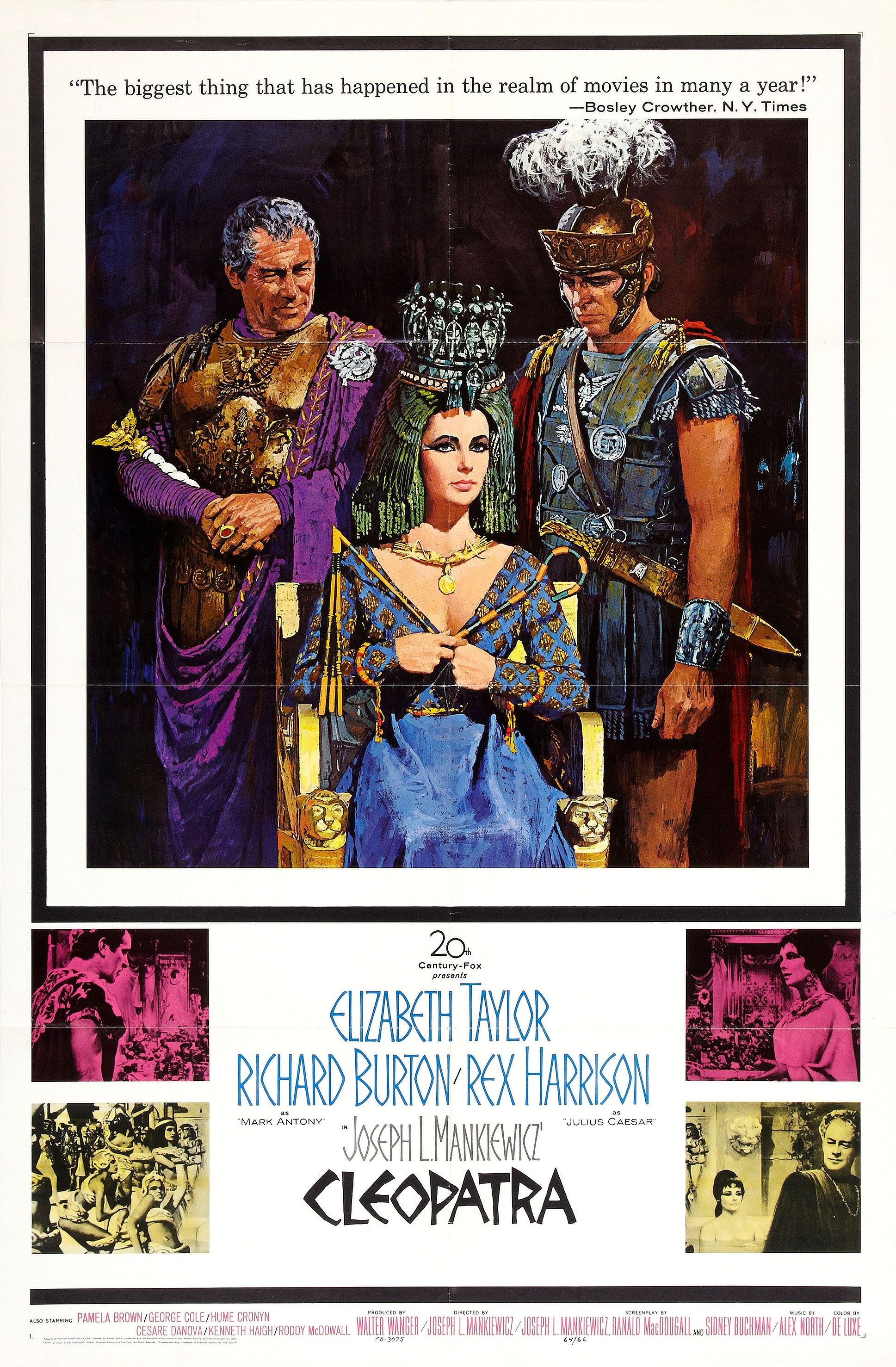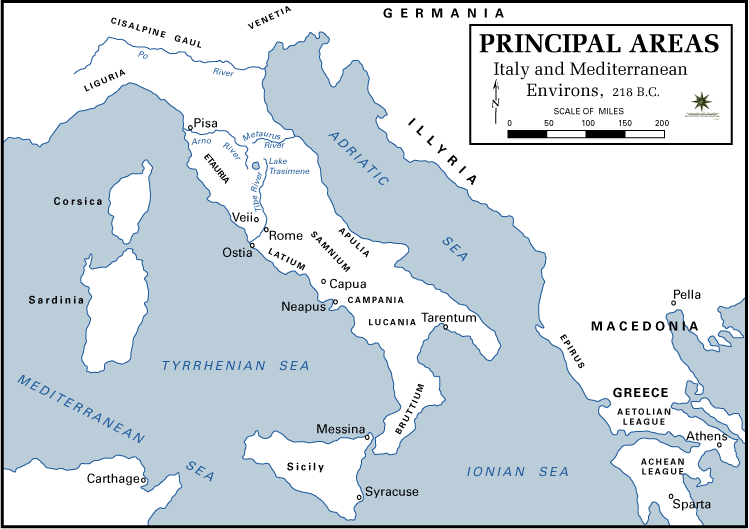This week, I wanted to take a look at the movie that has the dubious distinction of being the only film ever to be the top-grossing film of the year to lose money at the box office, "Cleopatra":
Loosely based on history, the film begins shortly after Caesar defeats Pompey Magnus at the Battle of Pharsalus to end Caesar's Civil War. Pompey flees to Egypt and Caesar pursues, only to find his frenemy assassinated by the Egyptians.
Thereafter, Caesar is quickly involved (in several senses of the word) in the power struggle between Cleopatra and her brother/husband/co-ruler Ptolemy XIII Theos Philopator. Cleopatra seduces the new leader of the Roman world and, after Caesar defeats her brother, bears him a son, Caesarion.
"A woman too must make the barren land fruitful. She must make life grow where there was no life. Just as the Mother Nile feeds and replenishes the Earth, I am the Nile. I will bear many sons. Isis has told me. My breasts are full of love and life. My hips are rounded and well apart. Such women, they say, have sons."
However, after the would-be king kicks the bucket (Et tu, Brute?), Cleopatra then seduces his old friend, Mark Anthony, who has formed the Second Triumvirate with Octavian, Caesar's great-nephew and adopted son, and Marcus Aemilius Lepidus, another of Caesar's generals.
Like the First Triumvirate, the Second Triumvirate, is an alliance of convenience that breaks down and leads to a showdown between Mark Anthony, with Cleopatra as ally, and Octavian. At the Battle of Actium, Cleopatra inexplicably chickens out and flees, causing by her doomed lover to follow and abandoned his troops.
With a run time of over 4 hours, "Cleopatra" was an epic (in several senses of the word) mess. Originally budgeted at $2 million, the film rapidly ballooned out of control. 20th Century Fox fired original director Rouben Mamoulian after 2 years, $7 million, and only 10 minutes of film! Replacement director Joseph L. Mankiewicz was able to complete the film, sort of.
Mankiewicz worked to sheer exhaustion directing by day and writing by night, with little sleep. The resulting movie is a mish-mash of love triangle, battle scenes and over the top grandeur. "Cleopatra" has a stellar cast but Elizabeth Taylor isn't able to carry the lead. For example, Queen Cleopatra VII Philopator, the last active ruler of the Ptolemaic Kingdom of Egypt, was one of the most interesting figures of Anquity, a diplomat, naval commander, polyglot, and medical author. However, not much of that background makes it to the silver screen.
So, if you want to see sparks fly between Liz Taylor and Richard Burton (they had a scandalous affair during production) or if you like old Hollywood Epics, this is an okay film. Otherwise, check out a better and more accurate take of Cleopatra and Mark Anthony in Season 2 of Rome!











